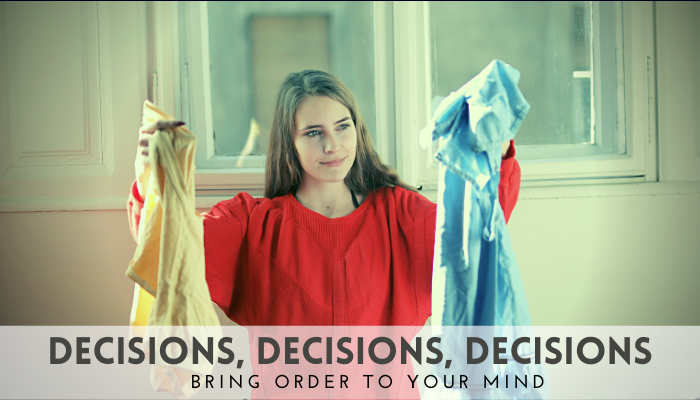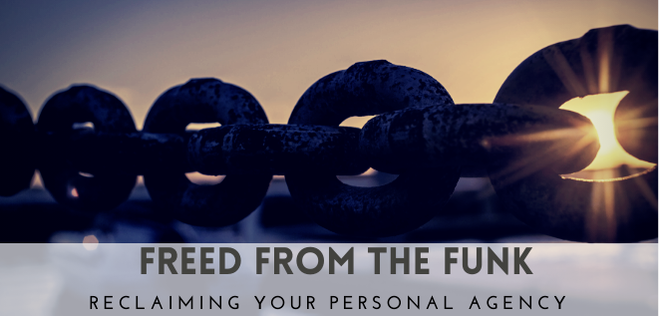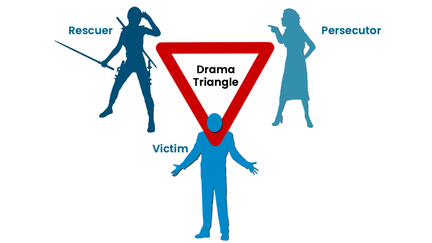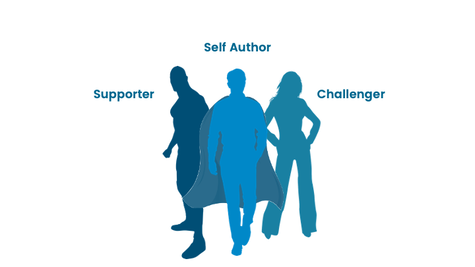|
Contributed by Georgia Ellis Deciding is one of the single most powerful mental moves you can make to help solve your problems. Your entire life is dictated by the decisions you make moment to moment. The health of your mind and body, the well-being of your family, your financial stability, your career success, how much a person will trust you and, the type of relationships you develop, all depend on your ability to make sound decisions. In the workplace 60% of two thousand executives surveyed reported that bad decisions were as frequent as good ones. When it comes to our personal lives people are making as many bad decisions as good one too. Consider the people who haven’t saved enough for retirement, and if they have ‘squirreled’ some money away, they often erode their portfolios with fear-based decisions or short-term payoffs. This was evident in Australia in 2020 when due to the global pandemic, people were given the option to access their superannuation savings to help meet their living requirements, yet some people withdrew the funds for hobbies, sports equipment, entertainment or to purchase a car. Ultimately decisions bring order to our mind, and this order is then reflected in our life. British philosophical writer James Allen wrote: “No one can see you making decisions, but they will almost always see the results of your decisions.” - James Allen I personally subscribe to the notion that we live and die by the decisions we make, and that for the most part we can rectify any ill-informed decisions. There are, however, people who make a decision and if they don’t get the desired results, they feel like a failure. The thing is, failing doesn’t make anyone a failure but being quick to throw in the towel when the going gets tough… well maybe that could be seen as failing. Pushing through or quitting are both decisions therefore any lack of accomplishment or high levels of achievement on your part are both the result of your decisions. What I find interesting about decision making is that we often think we make well informed decisions, yet the truth is, unless we have high levels of self and environmental awareness, we will neglect to consider the hidden influences both internal and external that unconsciously impact our judgements. Most of us don’t realise that our important decisions could be swayed by seemingly meaningless external factors. In the workplace judgements and decisions can be swayed by who spoke first in the meeting, what day of the week it is or whether the local football team won last night’s match. At home we could be swayed by the room temperature, whether we’ve eaten or how much sleep we had. Internal factors that can impede our decision making include subconscious programming that has formed certain biases over time, our unchecked assumptions, and our short-term emotions. These internal influences often move us away from rational and intuitive processing and lead to uneducated often bad decisions. Our hidden influences are rarely considered in our everyday approach to decision-making. When we encounter a choice, we tend to not entertain alternative options, often analysing our options through the lens of our confirmation bias which is only seeing information that we want to see. While our short-term emotion tempts us to make the wrong decision for the wrong reasons. Consider the times you made an irrational decision in a moment of anger, frustration or even during those warm fuzzy feelings of new love. We can make better decisions by bringing these hidden influences to the surface. A method I have been playing with in recent times has helped me to begin to recognise and lean into my biases and assumptions. And I’d love to share it with you here. When faced with a decision our incredible brains filtering system likes to point us towards the information that backs up our beliefs and values. As we consider our options and form our assumptions, the confirmation bias begins to block out information outside of our beliefs, leading us towards self-serving information. It’s at this early stage of the decision making process that I try to become aware that this is likely happening to me and I go about testing my assumptions. Testing Assumptions doesn’t come naturally. That’s the whole point of the confirmation bias—deep down, we never really want to hear the negative information. When testing assumptions, the aim is to collect information that you can trust however the confirmation bias skews your assessment by making you prefer one option over another and homing in on favourable data. To overcome this blind spot, you can develop the discipline of considering the opposite of your initial instincts. (I’m trying to build this muscle and boy oh boy the confirmation bias force is strong) You can also test your assumptions by asking yourself this simple question: “Is what I’m assuming happening 100% of the time to 100% of the population?" You can also test assumptions with constructive disagreement either with another person, or if your critical thinking is dialed up, pull out your journal and disagree with yourself. A curious mindset is super helpful too, you can dial up your curiosity by asking yourself and other people probing and open-ended questions to uncover information that your biases had previously blocked. Our assumptions and confirmation bias doesn’t just affect what information we go looking for; it also affects what we notice in the first place. (Damn our brains are clever at making us see what we want to see!) Depending on the importance of your decision, you can challenge your assumptions with formal well conducted research. This type of research is a learned skill; it is challenging, nuanced, complex and time consuming. Most of us don’t have the time, skills, or desire to do proper research. Most of us have become lazy, relying on gossip, information from less than credible sources, social media feeds and the mainstream news for information to help inform decisions that in some instances can have far reaching and negative effects on our results and wellbeing. Ultimately, it’s up to you to determine the level of due diligence your decision requires, choosing what vacuum cleaner to purchase, deciding if you want to be the first to trial a medical procedure, or contemplating whether to take a job that requires uprooting the entire family and taking them to a foreign country all involve different levels of research (Unless you’re like me who spent way too long researching a recent vacuum cleaner purchase!) If you do choose to conduct research, it’s helpful to know what formal research isn’t. Formal Research is Not:
This type of ‘fact finding’ is confirmation bias. Any of these sources are quickly and easily ruled out when doing actual formal research. Beware of google algorithms, they too are heavily biased to point you in the direction of your search history. When a decision requires accurate balanced research, it’s important that you apply critical thinking to discern the facts from the fiction. You can do this by:
When faced with important decisions the type of analysis and research you do will help you to make better decisions. A healthy dose of scepticism can be a good thing especially when applied to the things we believe or want to be true, and not just to those things outside of what we believe.
Decisions can range from simple, to complicated, to complex and in our faced paced world we need to develop a level of awareness that moves us away from our entrained thinking and conditioned responses. We must widen our perspective so that we aren’t blinded to new ways of thinking and stop thinking that our 'expertise' means we always know what the best decision is or what is the right way forward. The truth is none of us have a crystal ball and we’re all making the best decisions we can with the information we have… just do your best to source reliable and credible information for the decisions that matter to you. In March 2020, life started to feel a little funky, and not in the cool hip, bluesy kind of way, more of a holy almighty what has just happened to the world as I knew it kind of panic funk, and I’m certain I wasn’t the only one feeling this heavy uneasy feeling. Retrospect is a wonderful thing and six months on, I am grateful for all the knowledge and practices I had leading up to the occurrence of this global funk. I was able to navigate out of it, with a quick journey up to a higher perspective, noticing what was contributing to my personal experience of what was going on in the world, taking stock of what I could control, and then taking decisive action and maintaining practices that would allow me to weather this unrelenting onslaught of confusion. Taking decisive action and maintaining practices that would allow me to weather this unrelenting onslaught of confusion. There are many tools and ideas that I called on during this time, but the one I believe that served me the most was an idea I was introduced to in 2004 as part of a Leadership program I had attended. The idea was simple; I could either choose to approach life from one of two narratives, that of a person who has mastery over their life or one who has adopted a victim mentality. I recall having to list all the traits of a victim and a master. Upon reflection, I promptly decided that Mastering my life was where it was all a. So began the long and never-ending path to Mastery of Self, I began doing my best to model my life on being a person who took full responsibility for their outcomes, I began reflecting and adapting behaviours along the way. This was a game changer for me, I was letting go of allowing external forces such as relationships, the economy, managers or any situation outside of my control define who I was and how I felt, I was determined to dive into the depths of my being to see what I was really made of, oh and for what it’s worth, I am still doing that! Years later I would come across two other frameworks that expanded on these Victim / Master narratives. I was introduced to two new roles that keep us in a state of Funk and two additional roles that would allow me to show up as a better human to those I was sharing life with, move beyond the ongoing cycle of uncertainty and victim hood. Enter ‘The Drama Triangle’ (Stephen Karpmen) and ‘The Empowerment Dynamic’ (David Emerald). These ideas took me from looking at how I showed up for myself in life and introduced me to the roles I (and you) play in every human interaction and in every situation. I now had a detailed brief of the games we all unwittingly play together. The ongoing narratives we shift between that keeps us, and as we are experiencing on a global scale, the world in the funk of Drama and the roles we can choose to step into, to finally lift that funk. Roles that keep us in the Funk. The three roles in Karpman’s Drama Triangle are Victim, Rescuer & Persecutor.
Freeing yourself from the Funk, requires a shift from reacting in a situation to choosing to pause and consciously respond to life’s events. When you practice responding, you take yourself out of the situation and are better equipped to observe your behaviours. David Emerald ‘s book “The Empowerment Dynamic” provides alternatives to playing in the dysfunctional Drama Triangle. You can move from showing up as a Victim, Persecutor or Rescuer to interacting in a positive and empowering way. With curiosity and compassion, you can move from being a rescuer to a supporter, from a persecutor to a challenger and from being a Victim of Circumstances to Self-Authoring and creating your life. Freed From The Funk “In order to change an existing paradigm you do not struggle to try and change the problematic model. You create a new model and make the old one obsolete.” - Buckminster Fuller Using the wisdom of Buckminster Fuller you can switch out the Drama roles by creating new mental models that would look like this.
You will notice a clear difference between the roles, the roles trapped in drama keep everyone stagnant, angry, anxious and frustrated. While the empowering roles facilitate growth, and physical, mental and emotional well being. It takes moments to read about these roles, however it takes a lifetime of application to master the empowering behaviours that will free you from the funk. As you reflect on life right now, this perpetual funk that most find themselves in, ask yourself, am I keeping myself here, am I dancing around with my friends and family in Drama or are we empowering ourselves and those we care about to take responsibility and self-author our way to greater agency? I want to leave you with this quote by Jim Rohn as food for thought and to inspire you to no longer being the victim to what is happening in the world we share, but to choose to take responsibility and create circumstances that turn the Funk into Funky (in a bluesy kind of way) “You must take personal responsibility. You cannot change the circumstances, the seasons, or the wind, but you can change yourself. That is something you have charge of.” - Jim Rohn Let's dance!
Georgia The Life Reloaded and Future Ready Leadership programs run by Blue Chip Minds dive deep into these models and much more to help you to stop dabbling in Drama and begin to reclaim your personal agency. |
Authors
Our Contributors are a mix of passionate and switched on Humans ready to share their, career, business, well-being, leadership and performance insights with you so you can be the architect of your own extraordinary future! Archives
May 2024
Categories
All
|
Global professional development solutions for individuals and organisations.
Working with Individuals and organisations in;
Australia | Singapore | Hong Kong | United States | India | United Kingdom | Dubai | China | Poland
Malaysia | New Zealand | Japan | Belgium | Austria | South Africa | Brazil | Canada
Working with Individuals and organisations in;
Australia | Singapore | Hong Kong | United States | India | United Kingdom | Dubai | China | Poland
Malaysia | New Zealand | Japan | Belgium | Austria | South Africa | Brazil | Canada
|
We acknowledge the Traditional Custodians of the land on which we live, work, meet and play. This most often is the Wurundjeri people. We pay our respects to Elders past, present and emerging of the Kulin Nation. We extend gratitude and respect to Aboriginal and Torres Strait Islander peoples and global indigenous cultures for their incredible wisdom, resilience, deep connection to the natural environment and their deeply transformative spiritual practices.
We have so much more to learn from you. |
Copyright © All Rights Reserved BLUE CHIP MINDS 2013 - 2021





 RSS Feed
RSS Feed
